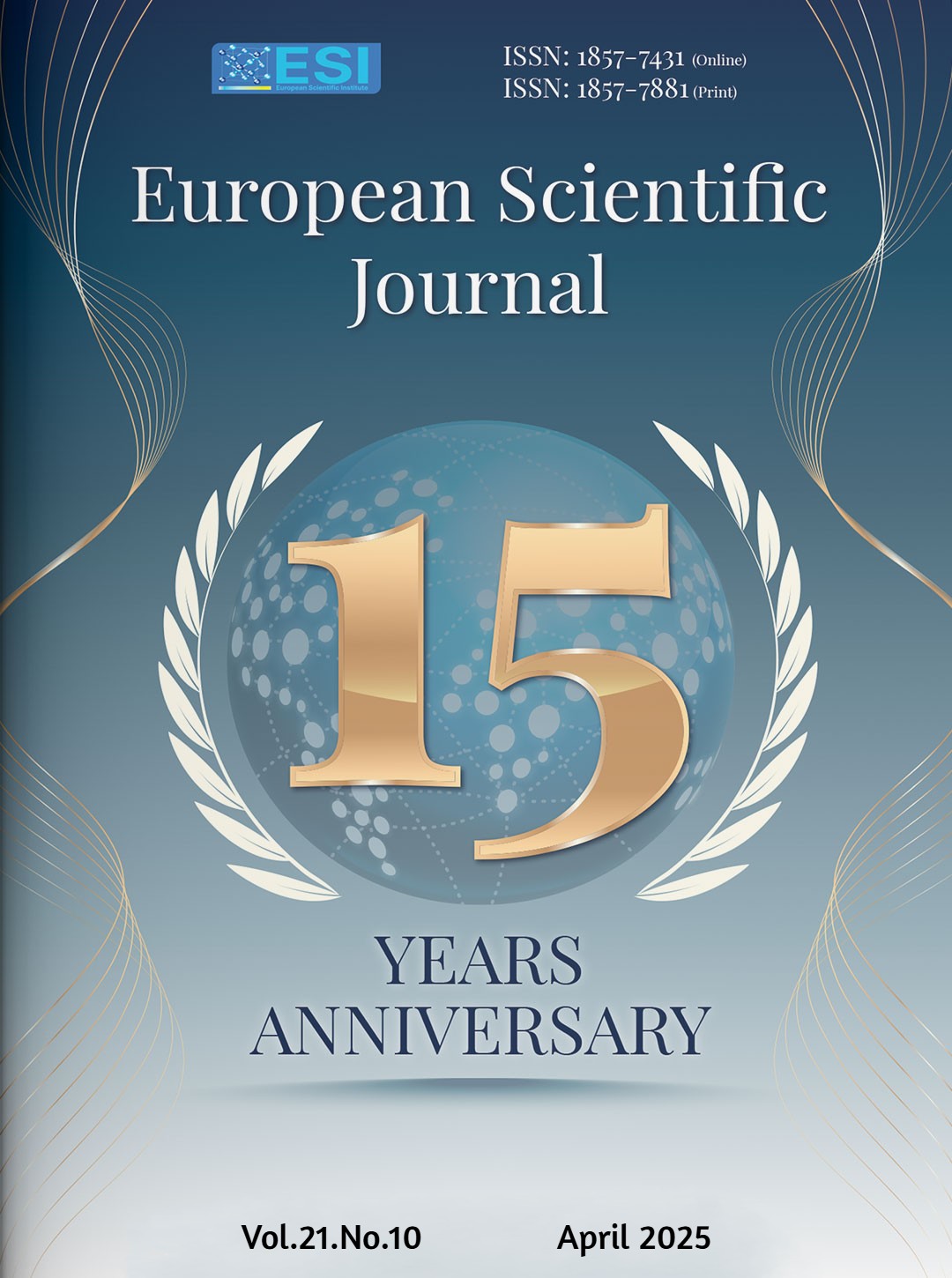Enhancing PhD Education: Research Collaboration and Assistantship Insights from Columbia Teachers College and Georgian Universities
Abstract
Postgraduate education has always been a vital component of academic development, delivering specific expertise and knowledge and advancing innovation throughout different sectors of science and industry. In the context of an ever-changing environment, universities seek to improve their postgraduate programs by embracing successful models from different parts of the world. This endeavor of improvement necessitates an integrated approach to forward-looking postgraduate studies, designed to equip learners with the knowledge and competencies needed to thrive not only in conventional scholarly careers but also in a broader spectrum of positions within non-academic circles. All earnest efforts should be made to nurture the competencies of doctoral students to become applicable for diverse fields, such as industry, public or private sectors, non-profit institutions, and business organizations, therefore facilitating graduates to find their way in a competitive labour market successfully. The focus of this paper is to identify and analyze the advantages associated with experiential teaching and learning through professor assistantships and cooperative research in doctoral programs. This paper uses qualitative data and analyzes them from institutional policy documents and primary documents such as curriculum and policies for teaching/learning in postgraduate courses at Columbia Teachers College, NYU, and recent changes to institutional regulations concerning doctoral education at International Black Sea University (IBSU). Additionally, it investigates specific mechanisms embedded in these programs that foster development at both the prospective academic and professional levels. The findings suggest that professor assistantships and collaborative research are considered valuable experiences that benefit both doctoral students and the staff of the university through the development of teaching experience, professional development, and mentor/mentee relationships. Finally, this paper gives insight and recommendations for Georgian universities based on successful models found and could have implications for the quality and relevance of doctoral programs and their ability to prepare graduates for the competitive and diverse labour markets.
Downloads
PlumX Statistics
References
2. DeAngelo, L., DeAngelo, D., Iannotti, M., & O'Brien, J. (2016). The effect of teaching assistantships on graduate student success: Evidence from a quasi-experiment. Economics of Education Review, 52, 22–41.
3. DeCastro, R. (2019). Faculty mentorship: Is it time to broaden the scope? Advances in Medical Education and Practice, 10, 571.
4. De Welde, K. J., & Parker, L. (2015). Gender, race, and class in the academy: Toward intersectional strategies for achieving equity in higher education. New Directions for Institutional Research, 2015(165), 5–15.
5. Evans, T. M., Bira, L., Gastelum, J. B., Weiss, L. T., & Vanderford, N. L. (2018). Evidence for increased rates of mental health disorders among graduate students. Nature Biotechnology, 36(3), 282–284.
6. Freeman, S., Eddy, S. L., McDonough, M., Smith, M. K., Okoroafor, N., Jordt, H., & Wenderoth, M. P. (2014). Active learning increases student performance in science, engineering, and mathematics. Proceedings of the National Academy of Sciences, 111(23), 8410–8415.
7. Kamphorst, J. C., Adriaan Hofman, W. H., Jansen, E. P., & Terlouw, C. (2015). Explaining academic success in engineering degree programs: Do female and male students differ? Journal of Engineering Education, 104(2), 189–211.
8. Metcalfe, J., Lake, L., & Fisher, D. (2018). Capturing doctoral student experiences: Using qualitative research to inform policy and practice. Studies in Higher Education, 43(2), 320–332.
9. National Academies of Sciences, Engineering, and Medicine. (2019). Graduate STEM education for the 21st century. Washington, DC: The National Academies Press.
10. National Center for Education Statistics. (n.d.). Retrieved February 27, 2025, from https://nces.ed.gov/.
11. National Research Council. (2015). Enhancing the Effectiveness of Team Science. The National Academies Press.
12. Pyhältö, K., Toom, A., Stubb, J., & Lonka, K. (2015). Challenges in doctoral education: Finnish doctoral students’ experiences. Scandinavian Journal of Educational Research, 59(6), 603–618.
13. Shannon, G. W., Lynn, D. K., & Strother, J. (2015). Graduate teaching assistants' perceptions of the value of their teaching experiences. Journal of Higher Education Theory and Practice, 15(3), 1–14.
14. Stephan, P. E., & Levin, S. G. (2016). Striking the mother lode in science: The importance of age, place, and time. Oxford University Press.
15. Stephan, P. E. (2012). How economics shapes science. Harvard University Press.
16. Sverdlik, A., Hall, N. C., McAlpine, L., & Hubbard, K. (2018). The PhD experience: A review of the factors influencing doctoral students’ completion, achievement, and well-being. International Journal of Doctoral Studies, 13, 361–388.
17. Thompson, A. (2018). Quality Assurance in Research: The Role of Scientific Committees. Journal of Academic Research, 10(4), 78-89.
18. Trenshaw, K. F., Revelo, R. A., Earl, K. A., & Herman, G. L. (2016). Using self-determination theory principles to promote engineering students’ intrinsic motivation to learn. International Journal of Engineering Education, 32(3), 1194–1207.
19. Wai-Chan, S. (2017). International research collaboration creates higher impact. Nordic Journal of Nursing Research, 37(2), 70–72. https://doi.org/10.1177/2057158517706259
20. Wheeler, L. B., Maeng, J. L., Chiu, J. L., & Bell, R. L. (2017). Do teaching assistants matter? Investigating relationships between teaching assistants and student outcomes in undergraduate science laboratory classes. Journal of Research in Science Teaching, 54(4), 463–492.
21. Yampolsky, M., Greenhoot, A. F., & Munakata, Y. (2022). Addressing systemic inequalities in research funding. Perspectives on Psychological Science, 17(2), 582–594.
Copyright (c) 2025 Irma Machitidze, Irina Bakhtadze

This work is licensed under a Creative Commons Attribution 4.0 International License.








